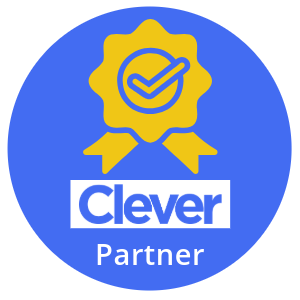Challenges with Modern Education System
Education has been and will continue to be one of the largest challenges that our country must face and must overcome. The quality of education varies significantly from community to community and from school to school. Standards such as common core have created a structure to measure and compare students and schools, but are limited in their scope of core skills of language and mathematics, and the value of this program has been a hotly debated political issue. The role of the federal government in public education is highly dependent upon who is in the white house and congress at any given time. In the meantime, budgets, particularly in public schools, are tight and getting tighter.
What happens when school districts have less capital to invest in new schools? They continue to crowd students into the existing schools by increasing class sizes. When class sizes get bigger, teachers are not able to spend as much time with each student. Even the best of teachers struggle to give those students personal attention and students receive a “generic” education with content intended to keep all students at the same level rather than allowing individual students to identify their strengths and overcome their weaknesses.
But is it fair for us to expect anything else? Funding for more teachers simply isn’t available at the local level, and the involvement of the federal government is likely to decrease, not increase. Parental involvement is on a decline as more and more families have both parents working, in many cases working more than one job each. Students are becoming increasingly focused on the primary skill that is measured, the ability to take standardized tests.
Available technologies aren’t enough
Schools, teachers, and parents have begun to turn to technology to help them to provide additional educational material to students and to keep them occupied and entertained in a way that is, at least at the surface, educational. However, are these solutions the answer, or are they really glorified babysitters?
The vast majority of the educational programs in the marketplace today provide a way to provide questions to students in a variety of game formats to keep their interest. These solutions have several flaws.
First, the focus of many of these solutions is on math and language skills, the same skills that the students are learning in school due to the focus on Common Core. Few of these solutions provide content in other key skills, such as history, geography, sciences, and social studies. The content is limited and redundant across the range of applications in the marketplace.
More importantly, these solutions do not evolve with the student. A common approach is for a pre-set list of questions to be presented by age or grade level. Certain applications allow for changing of levels based on a voluntary choice of the student or completing the lists of questions. They do not accurately track and adjust the questions based on the actual performance of the user. Therefore, kids are often presented with questions that are too easy for them as they want to focus on the games, not the learning, and therefore the actual learning they receive is fairly limited.
Parents and teachers also have limited information about how the children are performing. Business intelligence of applications is limited in terms of properly evaluating the progress of the student, comparing them to equivalent students of similar age and regions, and providing an in-depth analysis of the strengths and weaknesses of a solution.
Overall, while the technology available in many educational programs today provides a way to field questions to students in a fun format, they fail to truly customize the educational experience for each student. Therefore, they do not solve the problem of students receiving a generic education. For a truly customized experience, the application must adjust to constantly challenge the student and provide detailed feedback to parents or educators about the progress of the child.
Education Revolution and the Socrates Engine
Education Revolution has created a new method of teaching children that not only entertain them but also constantly pushes them to excel. Our unique Socrates™ engine keeps track of the result of every question that the student is asked, and adjusts the level of the questions constantly to find the right level of challenge that balances their desire to have fun with the primary intent of the solution, to guide them to constantly learn.
The Socrates™ engine keeps track of the child’s progress in each of hundreds of different question categories. If the child is struggling in a particular category, it adjusts to easier questions. If the child is doing well, the questions get harder for that particular category. As categories are mastered, additional topics are opened, guiding the student down a continuous path of knowledge.
In addition to Common Core categories of Math and Language skills, the Socrates™ engine has an ever-growing list of content that includes numerous other categories such as history, sciences, social studies, and geography. Content will continue to grow in more specialized topics over time.
As each category is individually tracked to measure student performance and guide the child to the proper level of challenge for that particular category, reporting can provide parents and teachers with competency on a category-by-category level. The Socrates™ development team, led by a Chief Data Scientist with extensive expertise in Business analytics, has designed the software to provide exceptional reporting capabilities to allow parents and teachers to compare the performance of students in individual categories to other students based on a variety of parameters, allowing for instant benchmarking of student performance.
Parents have the opportunity to receive report cards for their children on a regular frequency. These reports cards provide a category by category analysis of the areas that their children are excelling in, or challenged in, and allow for parents to adjust the priorities of the engine to focus more on categories that they wish to prioritize.
The result is a highly customized experience for each child – progressing as they progress. Children are not held back by the generalized content of a classroom setting nor restricted to the arbitrary definitions of what they should know at their particular age or grade level. Rather they are constantly evolving their learning, in real-time.
Having Fun
And let’s not forget the need to have fun. Gamification of learning is critical to keep the kids learning. Education Revolution makes the experience fun for students by including a constantly growing list of games. Questions are cleverly incorporated into the gameplay to ensure that it is additive rather than a distraction from the fun. Every question that is answered in every game updates their status in the Socrates™ engine, so the next time they play the same game the questions will have changed to reflect their current level of learning.
Playing games results in earning rewards that can be used to unlock items and open up new games. Parents are encouraged to provide real-world rewards tied to progress as well.
Changing Education
The power and flexibility of the Socrates™ engine will provide an entirely new way of educating our children in a way that combines fun with real, measurable outcomes. The application can be used to enhance the classroom experience and provide a tool that the children can engage with both at school and at home. For homeschoolers, Socartes™ provides a powerful way to measure the progress of children across hundreds of educational categories.
Benchmarking and reporting will provide extensive information to allow for adjustments to be made in student priorities. As the use of the application expands, the information that the reporting will provide will help educators and parents to better understand how to use that information to customize children’s learning experience.
Our web-based and mobile applications are currently closed for registration but we will be opening it up for additional members in the coming months. Please sign up here to be kept up-to-date on when we will be expanding to add additional students.




